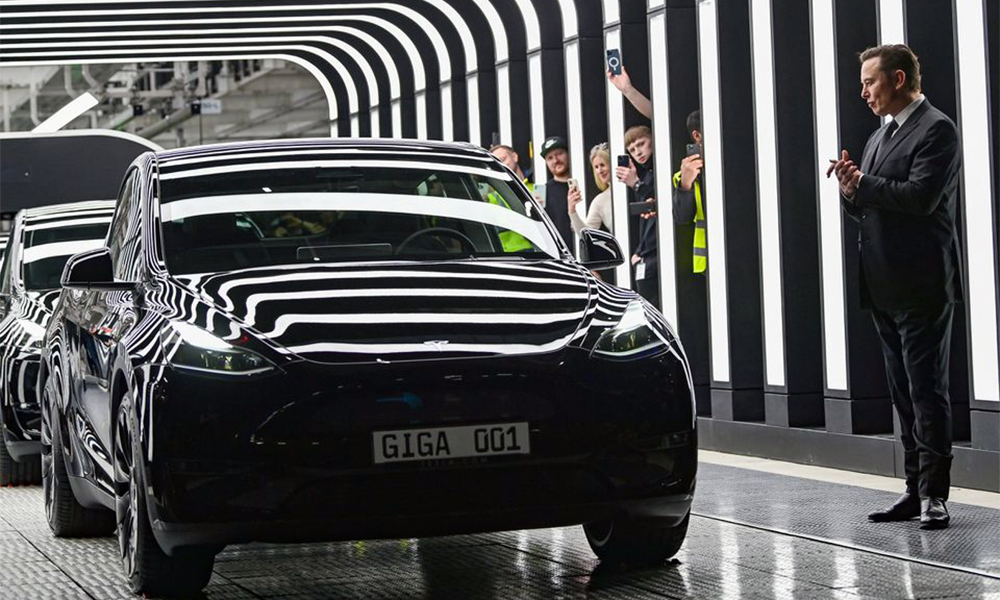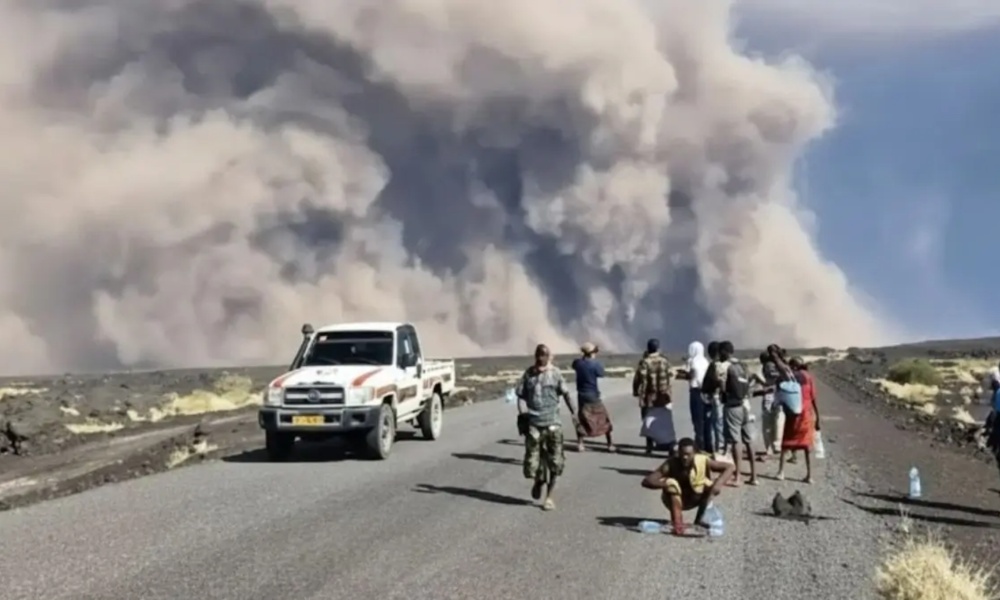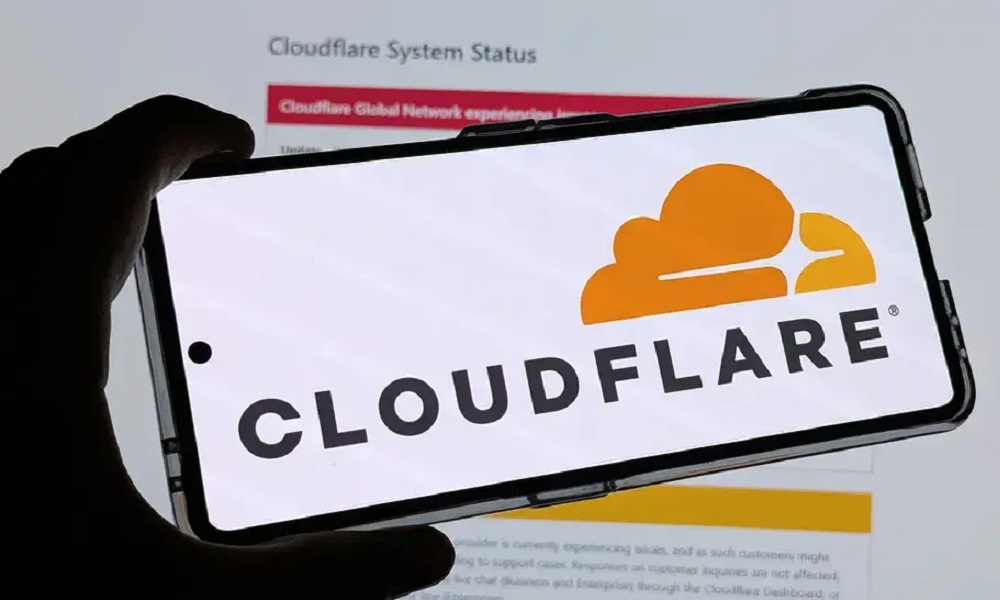Science & Technology
Elon Musk hands drivers first Teslas from new German gigafactory

Elon Musk was cheered as he oversaw the handover of Tesla’s (TSLA.O) first German-made cars at its Gruenheide plant on Tuesday, marking the start of the U.S. automaker’s inaugural European hub just two years after it was first announced.
Loud music played as 30 clients and their families got a first glimpse of their shining new vehicles through a glitzy, neon-lit Tesla branded tunnel, clapping and cheering as Tesla Chief Executive Musk danced and joked with fans.
“This is a great day for the factory,” Musk said, describing it as “another step in the direction of a sustainable future”.
Musk said that Tesla is likely to launch a test version of its new “Full Self-Driving” software in Europe, possibly next year depending on regulatory approval.
“It’s quite difficult to do full self-driving in Europe,” he told factory workers on Tuesday, saying much work needs to be done to handle tricky driving situations in Europe where roads vary a lot by country.
Although German Chancellor Olaf Scholz, who also attended the event, lauded the gigafactory as the future of the car industry, it has faced opposition and some environmental activists blocked the factory’s entrance while displaying banners flagging its high water use.
Two protestors abseiled from a motorway sign near the factory, blocking traffic for hours after the event.
Musk had hoped to begin output from the factory eight months ago, but licensing delays and local concerns around the plant’s environmental impact held up the process.
Tesla was forced to service European orders from Shanghai while it awaited its German licence, adding to rising logistics costs at a time when it was struggling with industry-wide chip shortages and other supply chain disruptions.
It got the final go-ahead from local authorities on March 4 to begin production in Germany, provided it met conditions ranging from its water use to air pollution controls.
The plant opening came on the same day as the top U.S. securities regulator urged a federal judge not to let Musk back out of an agreement requiring that his Twitter use be monitored.
Tesla shares ended up 7.9% at their highest level in more than two months on Tuesday.
RACE WITH VW
The new owners received the Model Y Performance configuration, a vehicle costing 63,990 euros ($70,500) with a 514 km (320 miles) range, Tesla said, adding that new orders from the plant could be delivered from April.
Tesla said that around 3,500 of the plant’s expected 12,000 workers have been hired so far.
At full capacity, the plant will produce 500,000 cars a year, more than the 450,000 battery-electric vehicles that German rival Volkswagen (VOWG_p.DE) sold globally in 2021.
It will also eventually generate 50 gigawatt hours (GWh) of battery power, surpassing all other plants in Germany. Tesla is expected to initially import batteries from China for its German-made Model Ys before it starts local battery production.
Musk said on Tuesday that battery production will be a “challenge” next year and will be “the limiting factor” in the coming years, as Tesla aims to aggressively boost vehicle production.
For now, Volkswagen still has the inside track in the race to electrify Europe’s fleet, with a 25% market share to Tesla’s 13%. Musk has said ramping up production would take longer than the two years it took to build the plant.
JPMorgan predicted Gruenheide would produce around 54,000 cars in 2022, increasing to 280,000 in 2023 and 500,000 by 2025.
Volkswagen, which has received 95,000 EV orders in Europe this year, is planning a new 2 billion euro EV factory alongside its existing facility in Wolfsburg and six battery plants across Europe.
But its timeline lags Tesla’s, with the EV factory due to open in 2026 and the first battery plant in 2023.
Science & Technology
Australia social media ban set to take effect, sparking a global crackdown
For the social media businesses, the implementation marks a new era of structural stagnation as user numbers flatline and time spent on platforms shrinks, studies show.

Australia is set to become the first country to implement a minimum age for social media use on Wednesday, with platforms like Instagram, TikTok and YouTube forced to block more than a million accounts, marking the beginning of an expected global wave of regulation.
From midnight, 10 of the biggest platforms will be required to block Australians aged under 16 or be fined up to A$49.5 million ($33 million), Reuters reported.
The law received harsh criticism from major technology companies and free speech advocates, but was praised by parents and child advocates.
The rollout closes out a year of speculation about whether a country can block children from using technology that is built into modern life. And it begins a live experiment that will be studied globally by lawmakers who want to intervene directly because they are frustrated by what they say is a tech industry that has been too slow to implement effective harm-minimisation efforts.
Governments from Denmark to Malaysia – and even some states in the U.S., where platforms are rolling back trust and safety features – say they plan similar steps, four years after a leak of internal Meta (META.O) documents showed the company knew its products contributed to body image problems and suicidal thoughts among teenagers while publicly denying the link existed.
“While Australia is the first to adopt such restrictions, it is unlikely to be the last,” said Tama Leaver, a professor of internet studies at Curtin University.
“Governments around the world are watching how the power of Big Tech was successfully taken on. The social media ban in Australia … is very much the canary in the coal mine.”
A spokesperson for the British government, which in July began forcing websites hosting pornographic content to block under-18 users, said it was “closely monitoring Australia’s approach to age restrictions.”
“When it comes to children’s safety, nothing is off the table,” they added.
Few will scrutinise the impact as closely as the Australians. The eSafety Commissioner, an Australian regulator tasked with enforcing the ban, hired Stanford University and 11 academics to analyse data on thousands of young Australians covered by the ban for at least two years.
Though the ban covers 10 platforms initially, including Alphabet’s (GOOGL.O), YouTube, Meta’s Instagram and TikTok, the government has said the list will change as new products appear and young users switch to alternatives.
Of the initial 10, all but Elon Musk’s X have said they will comply using age inference – guessing a person’s age from their online activity – or age estimation, which is usually based on a selfie. They might also check with uploaded identification documents or linked bank account details.
Musk has said the ban “seems like a backdoor way to control access to the internet by all Australians” and most platforms have complained that it violates people’s right to free speech.
For the social media businesses, the implementation marks a new era of structural stagnation as user numbers flatline and time spent on platforms shrinks, studies show.
Platforms say they don’t make much money showing advertisements to under-16s, but they add that the ban interrupts a pipeline of future users. Just before the ban took effect, 86% of Australians aged 8 to 15 used social media, the government said.
“The days of social media being seen as a platform for unbridled self-expression, I think, are coming to an end,” said Terry Flew, the co-director of University of Sydney’s Centre for AI, Trust and Governance.
Platforms responded to negative headlines and regulatory threats with measures like a minimum age of 13 and extra privacy features for teenagers, but “if that had been the structure of social media in the boom period, I don’t think we’d be having this debate,” he added.
Science & Technology
Ethiopian volcano erupts for first time in nearly 12,000 years
Ash from the eruption drifted across the region, spreading over Yemen, Oman, India, and parts of Pakistan.

The Hayli Gubbi volcano in Ethiopia’s Afar region has erupted for the first time in almost 12,000 years, sending massive ash plumes soaring up to 14 kilometres into the atmosphere, according to the Toulouse Volcanic Ash Advisory Centre.
The eruption began on Sunday and lasted several hours. Hayli Gubbi, located around 800 kilometres northeast of Addis Ababa near the Eritrean border, sits within the geologically active Rift Valley, where two major tectonic plates meet. The volcano rises roughly 500 metres above the surrounding landscape.
Ash from the eruption drifted across the region, spreading over Yemen, Oman, India, and parts of Pakistan. Satellite imagery and social-media videos captured a towering column of white smoke billowing into the sky.
The Smithsonian Institution’s Global Volcanism Program notes that Hayli Gubbi has no recorded eruptions during the Holocene, the period dating back about 12,000 years to the end of the last Ice Age.
Volcanologist Simon Carn of Michigan Technological University also confirmed on Bluesky that the volcano had “no record of Holocene eruptions.”
Science & Technology
Cloudflare outage easing after millions of internet users affected

A global outage at web-infrastructure firm Cloudflare began to ease on Tuesday afternoon after preventing people from accessing major internet platforms, including X and ChatGPT.
Cloudflare, whose network handles around a fifth of web traffic, said it started to investigate the internal service degradation around 6:40 a.m. ET. It has deployed a fix but some customers might still be impacted as it recovers service.
The incident marked the latest hit to major online services. An outage of Amazon’s cloud service last month caused global turmoil as thousands of popular websites and apps, including Snapchat, were inaccessible due to the disruption.
Cloudflare – whose shares were down about 5% in premarket trading – runs one of the world’s largest networks that helps websites and apps load faster and stay online by protecting them from traffic surges and cyberattacks.
The latest outage prevented users from accessing platforms such as Canva, X, and ChatGPT, prompting users to log outage reports with Downdetector.
Downdetector tracks outages by collating status reports from a number of sources. “We saw a spike in unusual traffic to one of Cloudflare’s services beginning at 11:20 UTC. That caused some traffic passing through Cloudflare’s network to experience errors,” the company said in an emailed statement.
“We are all hands on deck to make sure all traffic is served without errors.”
X and ChatGPT-creator OpenAI did not immediately respond to requests for comment. – REUTERS
-

 Latest News3 days ago
Latest News3 days agoAfghan border forces prevent illegal entry of hundreds into Iran
-

 Latest News3 days ago
Latest News3 days agoPakistan summons Afghan diplomat over deadly attack in North Waziristan
-

 Latest News2 days ago
Latest News2 days agoAfghan health minister calls for medical cooperation between Kabul and New Delhi
-

 Latest News1 day ago
Latest News1 day agoAfghanistan signs 30-year deal for marble mining in Daikundi
-

 Latest News3 days ago
Latest News3 days agoJapan allocates nearly $20 million in humanitarian aid for Afghanistan
-

 Latest News2 days ago
Latest News2 days agoKarzai urges reopening of girls’ schools and universities for Afghanistan’s bright future
-

 Health5 days ago
Health5 days agoAfghanistan seeks India’s support in standardizing traditional medicine
-

 World5 days ago
World5 days agoUS readies new Russia sanctions if Putin rejects peace deal, Bloomberg News reports
























